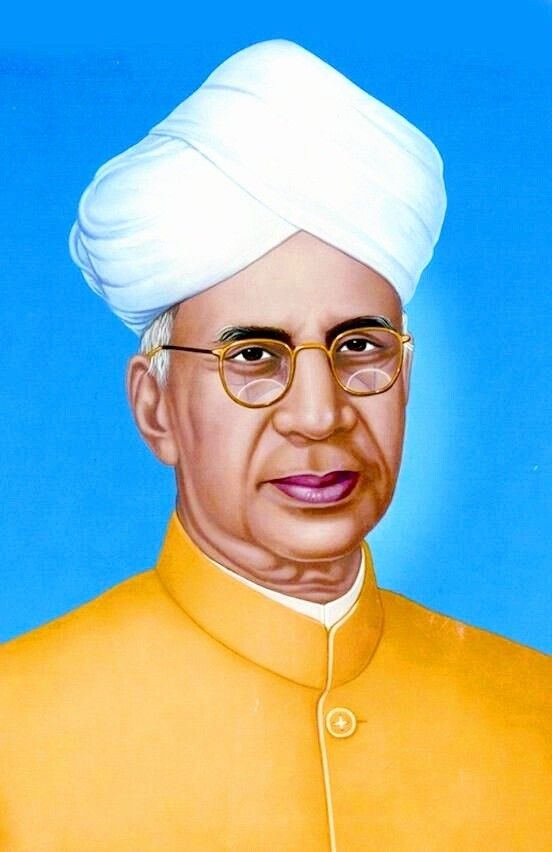Dr. Sarvepalli Radhakrishnan: The Scholar, Statesman, and Philosopher Who Shaped India’s Modern Identity
Dr. Sarvepalli Radhakrishnan, one of India’s most revered intellectuals, was not only an eminent philosopher but also a statesman who played a pivotal role in shaping modern India’s cultural and educational landscape. His legacy as a scholar, teacher, and president of India is a remarkable testament to the fusion of knowledge, leadership, and compassion. In this article, we will explore the life, contributions, and significance of Dr. Sarvepalli Radhakrishnan and reflect on how his ideas continue to inspire millions today.
Early Life and Education: Sarvepalli Radhakrishnan
Dr. Sarvepalli Radhakrishnan was born on September 5, 1888, in Tiruttani, Tamil Nadu, in a devout Brahmin family. His early life was steeped in traditional Indian values, but his intellectual curiosity led him to study both Eastern and Western philosophies. Radhakrishnan completed his schooling in Tirupati and later pursued a Bachelor’s degree in Arts at the Madras Christian College, where he developed a keen interest in philosophy. He further pursued a Master’s degree in philosophy, which became the foundation for his future academic pursuits.
His deep understanding of the Bhagavad Gita, Upanishads, and other Indian philosophical texts, coupled with his study of Western philosophers such as Immanuel Kant and George Hegel, gave him a unique ability to bridge the gap between Eastern and Western thought. Radhakrishnan’s academic excellence soon caught the attention of prominent scholars, and he went on to become a professor of philosophy at several prestigious institutions, including the University of Mysore and the University of Calcutta.
Philosophy and Intellectual Contributions: Sarvepalli Radhakrishnan
Dr. Radhakrishnan’s philosophy was characterized by a deep reverence for Indian spiritual traditions and a firm belief in the unity of all religions. His approach was grounded in the idea that philosophy should be a way of life, rather than just an intellectual pursuit. One of his most influential works was his interpretation of Hindu philosophy, which he presented in a way that was both accessible and relevant to modern times.
His famous book, Indian Philosophy, is still considered one of the most authoritative texts on the subject. Radhakrishnan’s writing emphasized the importance of spirituality, self-realization, and the pursuit of truth, aligning with the broader philosophical tradition of Vedanta. He believed that the essence of all religions was the realization of the divine within oneself and that no religion had a monopoly on truth.
He also spoke extensively on the role of philosophy in education, arguing that education should not only impart knowledge but also foster moral and spiritual growth. His emphasis on the integration of ethics and spirituality into the educational system laid the foundation for future educational reforms in India.
Political and Public Life: Sarvepalli Radhakrishnan
Dr. Radhakrishnan’s intellectual prowess and philosophical outlook also translated into his public life. He was a member of the Indian National Congress and supported the freedom struggle led by Mahatma Gandhi. Radhakrishnan’s advocacy for education and social reforms earned him respect and recognition from leaders across the political spectrum.
In 1952, Radhakrishnan was appointed as the first Vice President of India. He held this office for two terms (1952–1962) and played a crucial role in the functioning of the Rajya Sabha (Council of States). He was known for his fairness, tact, and profound knowledge of the Constitution, which earned him the respect of his colleagues and the public alike.
In 1962, Dr. Radhakrishnan became the second President of India. As President, he continued to uphold the ideals of secularism, democracy, and education. His tenure as the President was marked by his statesmanship and diplomatic acumen, and he became known as the “Philosopher-President.”
Sarvepalli Radhakrishnan Legacy and Impact on Society
Dr. Sarvepalli Radhakrishnan’s contributions to Indian society were both profound and far-reaching. His work in the field of education played a significant role in shaping modern India’s educational policies. Radhakrishnan advocated for universal access to education, the promotion of scientific thinking, and the encouragement of critical inquiry among students.
His birthday, September 5, is celebrated annually as Teacher’s Day in India to honor his contributions to the field of education and his philosophy of teaching. Teacher’s Day is not just a celebration of teachers but also a tribute to Radhakrishnan’s vision of education as a tool for societal transformation.
Radhakrishnan’s emphasis on moral values, the unity of mankind, and the importance of spiritual development continues to resonate with people across the world. He was instrumental in fostering a deeper understanding of Indian philosophy and culture globally, contributing to a greater appreciation of India’s intellectual heritage.
Key Quotes and Teachings: Sarvepalli Radhakrishnan
Dr. Radhakrishnan’s wisdom was often encapsulated in his memorable quotes, which continue to inspire generations. Some of his most significant quotes include:
- “True teachers are those who help us think for ourselves.”
- “A life of joy and happiness is possible only on the basis of knowledge and wisdom.”
- “The aim of life is to see the truth, and to live in harmony with it.”
His teachings were deeply rooted in the belief that knowledge should transcend the mere acquisition of facts; it should cultivate wisdom, compassion, and a sense of duty towards humanity.
Sarvepalli Radhakrishnan Observance and Significance Today
Dr. Sarvepalli Radhakrishnan’s impact on society continues to be felt today. His teachings on secularism, humanism, and the importance of education have inspired countless educators, students, and leaders across the globe. His work in reconciling the wisdom of Eastern philosophies with the insights of Western thought has contributed to a more holistic understanding of humanity’s intellectual and spiritual pursuits.
His vision of education, as a tool to cultivate moral values, critical thinking, and self-awareness, remains relevant in today’s world. In an era where society is increasingly focused on material success, Radhakrishnan’s emphasis on spiritual growth and ethical living is more important than ever.
FAQs about Dr. Sarvepalli Radhakrishnan
Q1: Why is Teacher’s Day celebrated in India?
Teacher’s Day is celebrated on September 5 to honor Dr. Sarvepalli Radhakrishnan’s contributions to the field of education. It marks his birthday and serves as a tribute to his vision of education as a means of personal and societal transformation.
Q2: What was Dr. Radhakrishnan’s most significant contribution to philosophy?
Dr. Radhakrishnan’s most significant contribution to philosophy was his interpretation of Hindu philosophy in a way that harmonized it with Western philosophical thought. His works, especially Indian Philosophy, remain influential to this day.
Q3: What role did Dr. Radhakrishnan play in Indian politics?
Dr. Radhakrishnan served as the Vice President of India (1952–1962) and later as the President of India (1962–1967). His tenure was marked by his deep knowledge of the Indian Constitution and his role in shaping India’s educational policies.
Sarvepalli Radhakrishnan legacy
Dr. Sarvepalli Radhakrishnan’s life and legacy are a powerful reminder of the transformative power of knowledge, wisdom, and ethical leadership. As a scholar, teacher, and statesman, he continues to inspire millions to pursue knowledge with a sense of purpose and to live their lives in alignment with higher principles.










